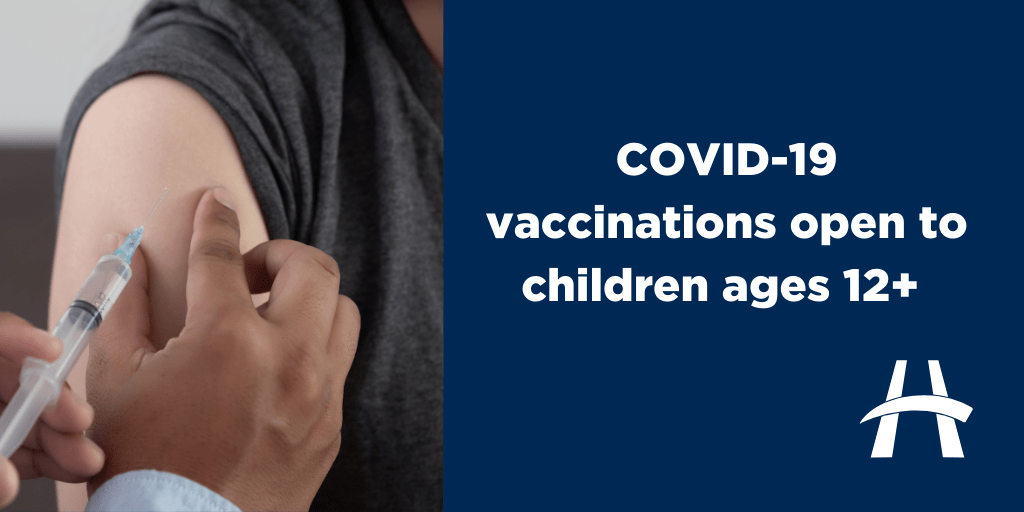
COVID-19 vaccines for children 5-11 are safe and effective
This story reflects the information available at the time of publishing. Guidelines may change. Please visit the City of Hamilton’s website for the latest information.
Experts at McMaster Children’s Hospital (MCH) encourage parents and guardians to have their children aged 5-11 get the COVID vaccine.
COVID-19 vaccines for children ages 5-11 have been approved by Health Canada.
The COVID vaccine is safe and effective for this age group. Parents and children should lean on their healthcare providers, ask questions, and seek out high-quality and trusted information to help them make informed decisions about vaccinating their child and feel comfortable with their decision.
McMaster Children’s Hospital (MCH) is working closely as an active partner within the Hamilton Public Health strategy and provincial efforts to support the vaccine rollout to children and teens.
Check back for information regarding when, where, and how to get your child’s COVID vaccine.
Frequently Asked Questions
 Answered by MCH infectious diseases specialist Dr. Jeffrey Pernica
Answered by MCH infectious diseases specialist Dr. Jeffrey Pernica
Why should children aged 5 to 11 get vaccinated?
Although children are not at a high risk of severe outcomes from COVID-19, the vaccine is a good preventative measure. The rationale for children ages 5-11 to get the COVID vaccine is similar to the rationale for kids ages 12-17. All are at much lower risk of severe disease as compared to adults. However, there are going to be children and parents who are concerned about getting COVID-19, because even though the risk is low it is not zero. There are certainly children in intensive care units in Canada and the U.S. because of COVID-19.
Other parents will want the vaccine for their children because it will make their lives easier. For example, even though most children with COVID-19 will not end up in hospital, many children who get the virus will miss weeks of school or other activities.
Finally, there may be parents who want their children to get the vaccine because it will protect their family, friends, and greater community. Though most children will not get sick from COVID-19, they are certainly able to get infected and pass it on…especially with the Delta variant.
How is this vaccine different from the adult vaccine?
The Pfizer formulation (which is the only vaccine currently approved for this age group) is 10 mg instead of 30 mg, so it is a lower dose than the formulation for adults. The liquid that it is mixed in is also slightly different.
The information from the clinical trials submitted to Health Canada indicates that the lower-dose pediatric vaccine results in similar levels of antibodies that protect against COVID-19, so it is still very effective.
If my child is turning 12 soon, should I wait for them to get the adult dose?
The smaller, child dose has been shown to be as immunogenic – the ability to generate an immune response – as the larger dose. There is no evidence that the larger dose works better in children. For that reason, I would not wait for them to get the larger dose.
Is the dose given based on my child’s weight (like other medications)?
There are no vaccines that are dosed differently by weight. The effectiveness of a vaccine depends on the maturity of the immune system – not the mass of a child’s bones, muscle, fat, etc. For that reason, there are age-based dosing regimens for all vaccines.
What are side effects for children?
The side effects seen in children are similar to the side effects seen in adolescents. In Ontario, side effects are less common in adolescents as compared to adults – we expect the same to be true in children. It is possible that the vaccine will rarely cause heart inflammation in children, the same way it does in adolescents.
VIDEO: Learn about myocarditis (heart inflammation) in children.
VIDOE: Learn about other vaccine side effects in children.
How has the vaccine uptake been for children 12+?
Vaccines for youth ages 12 and up have been available since August 2021 (both Pfizer and Moderna have been approved). Over 70% of youth over 12 years old are fully vaccinated in Ontario.
How is MCH involved?
MCH is working closely as an active partner within the Hamilton Public Health strategy to:
- provide expertise and advice
- participate in the vaccination clinics and services available to families in the city
- work with pediatricians and pediatric nurses
- provide staff for extra support clinics for youth with medical complexities, sensory needs, or other special circumstances (information coming soon)
- take part in provincial efforts to create support materials for children/youth/families and health providers (https://kidshealthfirst.ca)
Resources
- COVID-19 Vaccine Q&A with healthcare experts (answers to common parent/guardian questions)
- VIDEO: Vaccination tips for caregivers of youth with autism and neurodevelopmental disabilities
- VIDEO: Vaccination for children and consent
- Kid’s Health First webpage
- This is our Shot campaign (available in many languages)
- Ontario Association of Children’s Aid Societies: FAQ for Youth
- Ontario Association of Children’s Aid Societies: Conversation starter for adults speaking to youth about the COVID-19 vaccine
- The City of Hamilton’s webpage on COVID-19 vaccine for youth
- What youth need to know about their COVID-19 vaccine appointment
- Pre-Screening Form
- Vaccine Information Sheet
- Vaccine Consent Form for Youth
- After your COVID-19 Vaccine







